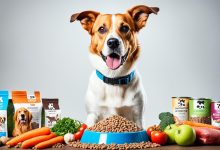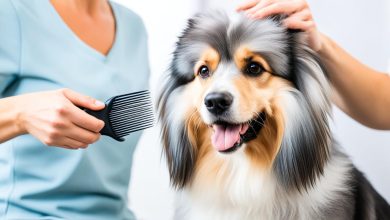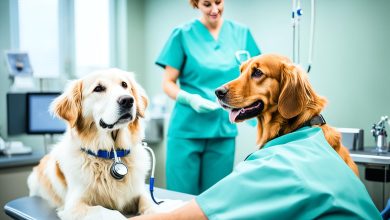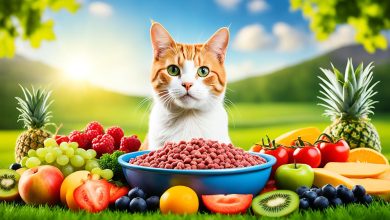Toxic Foods for Dogs and Cats: Keep Pets Safe
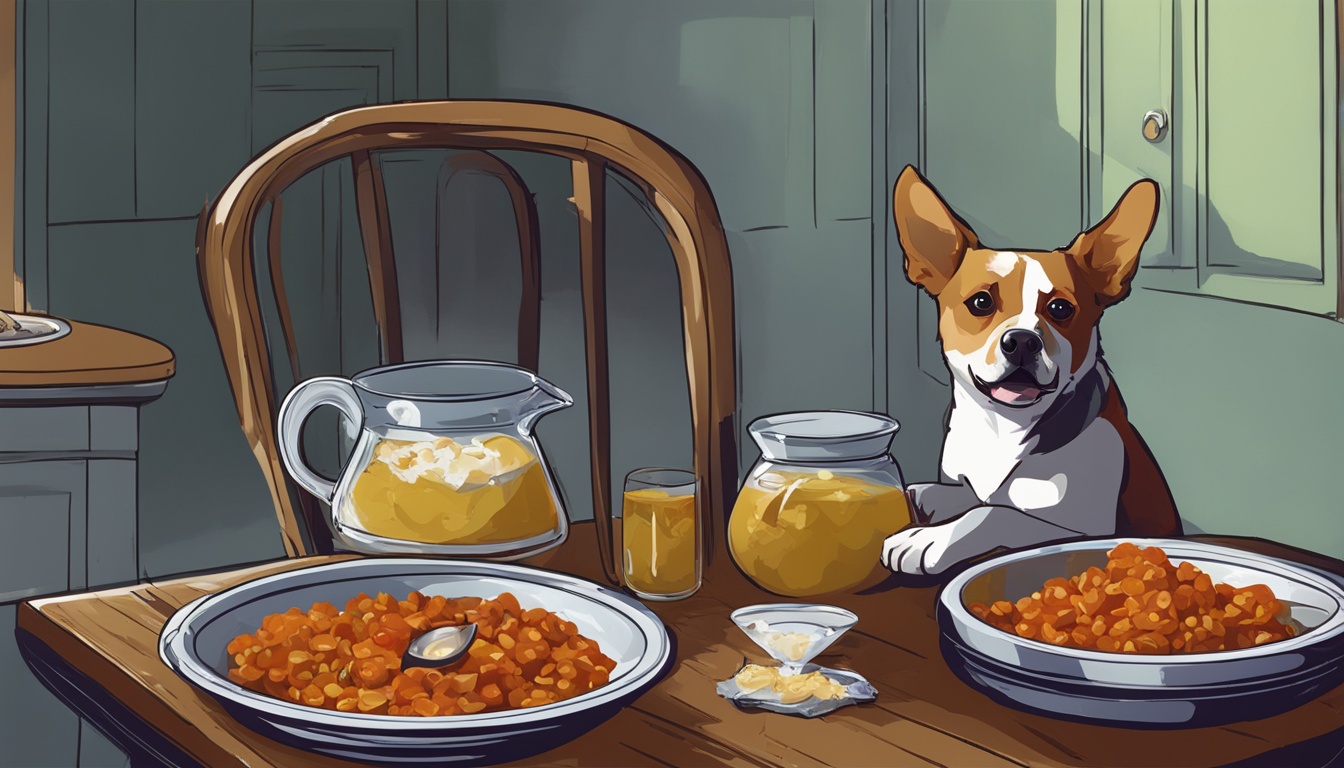
Pets are curious and like to explore with their mouths. It’s crucial for owners to keep them safe. They should know about toxic foods for dogs and cats. Dangerous foods include alcoholic drinks, apple seeds, apricot pits, avocados, and cherry pits. Also, chocolate, chives, coffee, garlic, grapes, gum (containing Xylitol), and hops are harmful.
Other risky foods are macadamia nuts, moldy foods, mushroom plants, and mustard seeds. Onions, peach pits, potato leaves and stems, and raisins should be avoided. Rhubarb leaves, salt, tea, tomato leaves and stems, walnuts, and Xylitol are also bad. This list isn’t complete. Always talk to a vet before giving pets any human food.
Key Takeaways:
- Keep pets safe by being aware of toxic foods for dogs and cats.
- Common foods that can be dangerous for pets include chocolate, grapes, onions, and Xylitol.
- Consult with a veterinarian before giving pets food that is not specifically intended for animals.
Common Signs and Symptoms of Pet Food Poisoning
If your pet eats toxic foods, knowing the signs of food poisoning is key. This helps you act fast and get them the care they need. It’s vital for your animal friend’s health.
Vomiting and Diarrhea: Vomiting and diarrhea are often signs your pet may have food poisoning. These symptoms can mean they’re having trouble with their digestive system.
Coordination Issues: Food poisoning can make it hard for pets to move well. They might stumble, have a shaky walk, or find it hard to stay balanced.
Difficulty Breathing: Certain toxic foods can make breathing tough for pets. If they pant a lot or struggle for air, they need a vet right away.
Tremors and Abnormal Movements: The nervous system of your pet can get affected. You might see them shake, twitch, or move in odd ways.
Abnormal Blood Acidity: Severe food poisoning can mess with blood acidity, known as metabolic acidosis. This leads to tiredness, weakness, and health decline.
Excessive Thirst and Urination: Toxic foods might make pets drink more and urinate often. Watch if they’re drinking a lot or going to the bathroom more than usual.
Hyperactivity and Abnormal Heart Rhythm: These signs could point to food poisoning. Pets may become overly active, restless, or have an odd heartbeat.
Seizures: In bad cases, pets might have seizures. If this happens, keep your pet safe and call a vet immediately.
Weakness and Depression: Pets can become weak and depressed from food poisoning. If they seem unusually tired or sad, they need help from a vet.
Pale Gums and Swollen Head/Neck: These could be serious signs of food poisoning. They often mean your pet needs urgent care.
Gastrointestinal Irritation: Irritation and swelling in the belly can happen. Your pet might feel belly pain, bloating, or discomfort.
Anemia and Kidney Failure: Long-lasting or severe cases can lead to anemia or kidney failure. These are serious and need quick vet care.
Joint Stiffness and Digestive Upset: Your pet might have stiff joints or stomach issues, like not eating or constipation, from poisoning.
If you see any of these signs after they eat something toxic, contact a vet or the ASPCA Animal Poison Control Center right away. They can guide you on what to do next.
Keeping Your Pets Safe: Tips for Pet Food Safety
Making sure our furry friends are healthy involves being careful with their food. By following easy tips, you can keep your pets safe from food that could hurt them. This includes toxic foods for dogs and cats, as well as dangerous pet food and treats.
Firstly, always check the labels when buying pet food or treats. Choose products that follow strict safety rules. They should also be right for what your pet needs to eat. Stay away from foods with harmful ingredients like Xylitol or onions.
How you store pet food is also key. Keep dry pet food in a cool, dry spot, sealed tightly. This helps stop food from going bad or getting bacteria. Do the same for wet pet food by keeping it in the fridge if opened. Throw it away if it’s been out for more than two hours.
Last but not least, seeing your vet regularly is important. They help you watch over your pet’s overall well-being and eating habits. Talk to your vet about the best food for your pet’s age and breed. They’ll help you pick safe, nutritious options for your animal friend.
FAQ
What are some common toxic foods for dogs and cats?
What are the signs and symptoms of pet food poisoning?
What can pet owners do to ensure pet food safety?
Source Links
- https://www.humanesociety.org/resources/plants-and-food-can-be-poisonous-pets
- https://www.aspca.org/pet-care/animal-poison-control/people-foods-avoid-feeding-your-pets
- https://animalemergencyservice.com.au/blog/toxic-foods-for-dogs-cats/
